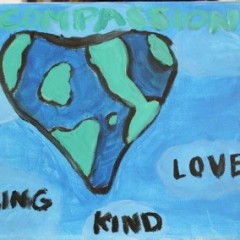
During the recent Compassion Convention in Toledo, I asked, “Why did the organizers feel a need to get elected officials on board?” Based on my knowledge of politicians, I was quite sure that all of them would sign up to say that they themselves were for compassion.
More recently in the U.S.-Mexico border crisis, it seems that the efforts by churches and private charity aren’t good enough. Only federal detention centers are an appropriate expression of American compassion. A related issue is the entanglement between private charities and the feds.
As part of the crisis, the feds offered a $50 million grant to Baptist Child and Family Services to buy a resort complete with indoor pools, saunas, and tennis courts to house these kids who arrived in the USA illegally. Eventually the Baptists bailed out, but it begs the question: “When did the church become an agent of the state?”
I have some possible answers but they’re only theories. I really do want the thoughts of folks who indentify with this position. So here we go:
- If you don’t believe that private charity can handle the job, how did we manage to do it that way till the 1930s?
- Isn’t it biblically the duty of the church, not the state, to put compassion into action? The Good Samaritan didn’t report the man on the side of the road to the authorities; he helped the person himself.
- Is the government an appropriate place for the community, through its elected officials, to exercise the community’s compassion? On this one, I have some sympathy. In Ohio’s early days, poor relief, as it was called then, was a local matter. Every township set its own relief standards. (Here is a good report on the topic.)
With this system, at least, it was neighbors helping neighbors. What possible sense can it make to send money to Washington DC where they take their cut, then send it back? Why should they make the rules? Perhaps because you trust the feds more than local government. Why do you think that?
If you have other reasons, I’d like to hear them. If you accept any of these positions, I’d like you to answer my questions.
For me, I like private charity. I like local control. Gov. Mitch Daniel (R., Indiana) has proposed an innovative programs to replace Medicaid. Gov. John Kasich (R., Ohio) is implementing a joint HMO for folks who are “dual eligible” for Medicaid and Medicare. The states are the laboratories of democracy.
– See more at: http://toledofavs.com/2014/07/20/blog-is-compassion-a-function-of-government/#sthash.O5hcPx0c.dpuf








1. It’s a matter of scope. Churches and private charities were capable of handling most of the need until the 1930s. With the Great Depression the needs of the unemployed, homeless, and destitute far outstripped the capacity of private charity. Since then the growth of the poor sector of our society has continued and escalated, while the percentage of our society that identifies with “church” (and would be motivated by their church involvement to give time and money to enable private charity) has steadily shrunk. 2. Yes, it is the “duty of the church” (or, rather, the privilege of the church since it makes us look like Jesus) to put compassion into action – and many, many people of faith do this quietly and with great impact every day. 3. Yes, in a republic with a democratic system the government represents the people and when a large segment of the people want the government to help them help the neediest among us, then it is appropriate for said representatives to exercise compassion. It is appropriate for all levels of government to help the needy because the most local level has the best information and the most access to immediate needs. The middle level can coordinate the acquisition and delivery of needs and utilize economies of scale for more help to more people. The top level of government can utilize its scope and taxing authority to provide resources that most closely match the staggering level of need in some places where local resources are overwhelmed. Just because some large government programs have become overgrown and inefficient does not mean that smaller jurisdictions can even begin to meet the tremendous levels of need that have been brought about in recent years by the obscene gap between the Super Rich and the rapidly expanding poor in our land.